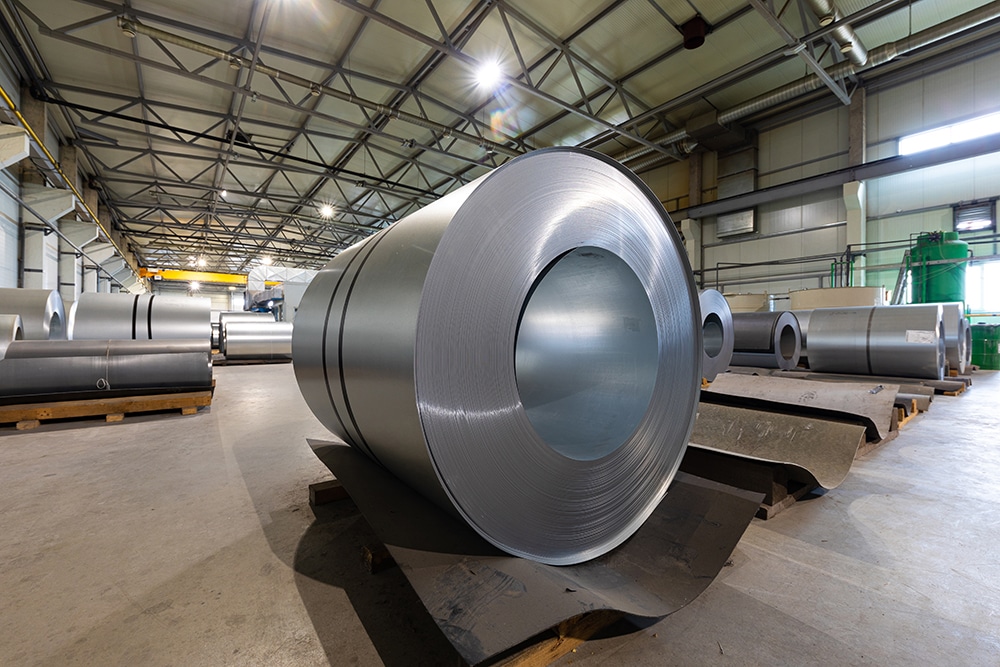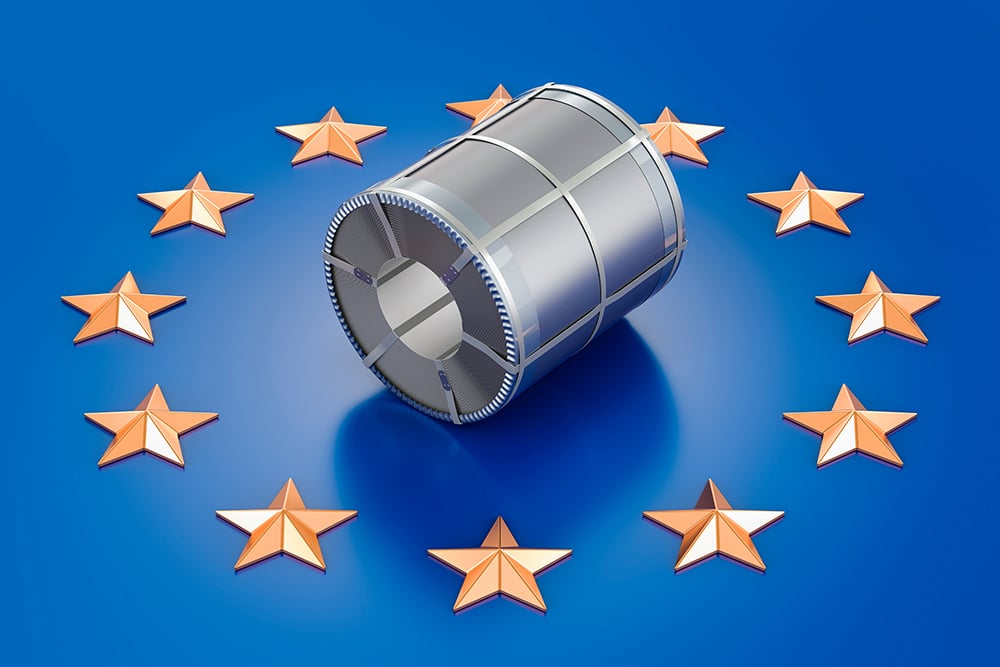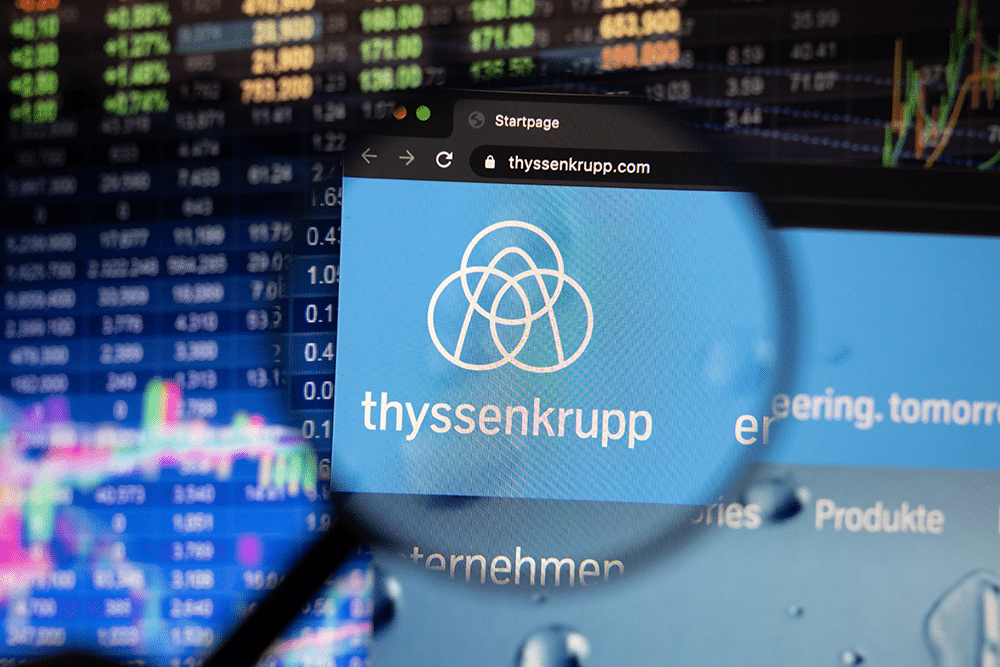Germany flats producer ThyssenKrupp Steel (TKS) recently announced plans to cut its production capacity by an average of 19.5%, citing current market conditions as the main reason. Indeed, the European steel industry continues to face a wide range of challenges, including economic challenges and surging energy costs.
“The aim is to make ThyssenKrupp Steel fit for the future against the background of persistently challenging market conditions,” the group said in an April 11 announcement. Consequently, TKS noted that it will cut production to a “shipping corridor” to 9-9.5 million metric tons for 2024. This represents a significant decline from its current capacity of around 11.5 million metric tons (Read more about steel industry trends like these which could impact your sourcing in MetalMiner’s weekly newsletter).

“With the planned realignment, Germany’s largest steel company is responding on the one hand to the persistently weak state of the economy, but primarily to fundamental medium and long-term structural changes in the European steel market and in crucial customer and target markets.
These include, among other things – especially in Germany – the continuing upward trajectory of energy costs owing to climate policy objectives, as well as unchecked rising import pressure, mainly from Asia, and an ongoing deterioration in the steel trade balance, which in aggregate are making for reduced industry competitiveness,” TKS stated.
“The plans for the restructuring will now be put in concrete terms right away and then consulted upon with the workforce representation and the responsible committees of the steel division,” company representatives added.
ThyssenKrupp Could Usher in a “New Normal” for the EU Steel Industry
TKS’ main production site at Duisburg, in western Germany’s North Rhine-Westphalia State, can pour about 10 million metric tons of pig iron a year from its four blast furnaces. It can also produce up to 13 million metric tons of crude steel via two basic oxygen furnaces. The plant then casts slab for rolling into hot and cold rolled coil as well as plate. Other products at the plant include non-grain- and grain-oriented electrical steels, along with downstream coated products, such as hot dipped galvanized sheet, tinplate, and pre-painted.
One steel industry player was not surprised by TKS’ move in the current environment. “I think the EU industry is going to have to accept consistent lower quantities,” that source told MetalMiner.

Mills in northern Europe sought €650-660 ($690-700) per metric ton EXW for hot rolled coil over the past two weeks, reflecting a drop from about €700 ($745) in late March. Sources told MetalMiner that the main issues behind this drop were weak economic growth and high interest rates. “I think nobody wants to keep making a loss. So, for sure, the downward pressure will cause several mills to lower capacity,” the source added when asked about TKS.
It’s also worth noting that the European Central Bank’s Governing Council left its rates unchanged in its last policy meeting, which took place on March 7.
Decode and understand steel market trends and stay ahead of the competition. The MetalMiner Monthly Metals Outlook equips you with the insights needed to understand and respond to market shifts effectively, covering 4 of the most common steel forms. View a free sample.
Steel Prices, Energy Prices, and Ongoing Conflict
On February 13, ThyssenKrupp reported that TKS saw an adjusted EBIT of €69 million ($73.5 million) for its fiscal Q1 ending December 31. This reflects a 23% decline year on year from €90 million ($96 million).
ThyssenKrupp also reported that Steels Europe recorded an adjusted EBIT of €320 million ($340 million) for its fiscal 2023 year ending September 30, against total revenues €12.38 billion ($13.1 billion). Data from the group shows that those results reflect respective decreases of 73% and 5.89% year on year from an adjusted EBIT of €1.2 billion ($1.28 billion) and €13.156 ($14 billion).

Meanwhile, Trading Economics indicated that Europe’s benchmark Amsterdam TTF gas price was €33.61 ($35.79) per megawatt hour late afternoon on April 17, London time. That price is the highest recorded since January 5, when the benchmark hit €34.55 ($36.77). Such high prices clearly have a big impact on the steel industry as well as other metals producers.
Trading Economics also stated that instability in the Middle East was one reason behind the increase. Iran’s drone attack on Israel on April 13 continues to cause concerns over how Israel might retaliate, thus escalating conflict in the region. “Meanwhile, supply risks related to the war in Europe persist after Russian assaults on two underground storage sites in Ukraine,” the website added. (Learn how you can best plan for large steel industry and productions cuts by reading out free resource The Art of Timing Your Metal Buy).




